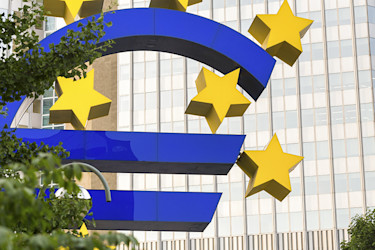Our research
Access all our publications and columns. Use the filters to easily find what content you are looking for.
Filters
All publications
512 results
Trump’s Greenland tariffs: Impact and possible EU response
- Macro economy
-
President Trump announced new tariffs on European countries in response to their Greenland military exercise. There is substantial uncertainty around implementation of US tariffs, both practically and legally. The EU is preparing its response, and escalation risk is rising, but use of the Anti-Coercion Instrument is unlikely in the very near-term. A ‘backloading’ of EU-US exports could lead to a near-term growth dip in Europe, followed by a rebound. All of this hinges on whether the US actually follows through on its threats, and whether Europe meaningfully responds

The Week Ahead - 19 - 23 January 2026
- Macro economy
-
These are the Key Macro Events for the upcoming week.

The Week Ahead - 12 - 16 January 2026
- Macro economy
-
These are the Key Macro Events for the upcoming week.

The economic fall-out from Trump’s Greenland ambitions
- Macro economy
-
President Trump has strongly re-stated his view that acquiring Greenland is a national security priority of the United States. The White House has said it is exploring options to do so and that ‘utilising the US military is always an option’. This comes against the background of the capture of Venezuelan President Maduro over the weekend. This was seen as a demonstration that the Trump administration is willing to use military power to achieve its objectives and that international law is not at the forefront of its considerations. Various other Latin American countries appear to be at risk of a similar fate, but there have also been renewed threats in the direction of Greenland. Greenland is an autonomous territory of Denmark, which is a member of both the EU and Nato. In this note, we set out the current state of play, possible scenarios and the implications for the European economy in a Q&A format.

The Week Ahead - 22 - 26 December 2025
- Macro economy
-
These are the Key Macro Events for the upcoming week.

Steady ECB rates as far as the eye can see
- Macro economy
-
The ECB kept its key policy rates on hold as expected at the December Governing Council meeting. In the press conference following the decision, President Christine Lagarde repeated that the ECB was in a ‘good place’ with regards to interest rates, but also that this does not mean that the policy would be ‘static’. Indeed, the Council continued to signal that it would ‘follow a data-dependent and meeting-by-meeting approach to determining the appropriate monetary policy stance’. However, with economic growth revised up in the projections and inflation (especially stripping out energy prices) broadly seen on target, a rate change in either direction does not seem on the cards anytime soon, absent of a new shock. Indeed, we expect the ECB to keep its deposit rate at 2% in the coming months.

Podcast - Talking Macro: Can Europe capture some of America’s exorbitant privilege?
- Macro economy
-
In this special festive episode, Bill talks with outgoing Chief Economist and incoming Chief Sustainability Officer Sandra Phlippen about the US's exorbitant privilege, and whether Europe might be able to capture some of it.

The Week Ahead - 15 - 19 December 2025
- Macro economy
-
These are the Key Macro Events for the upcoming week.

The Week Ahead - 8 - 12 December 2025
- Macro economy
-
These are the Key Macro Events for the upcoming week.

The Week Ahead - 1 - 5 December 2025
- Macro economy
-
These are the Key Macro Events for the upcoming week.
